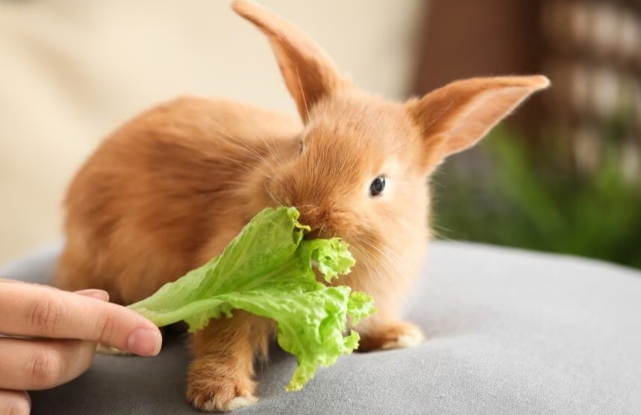Rabbits are commonly associated with munching on carrots and lettuce. However, their natural eating habits are far more varied and complex than commonly believed. Let’s take a closer look at some common rabbit food myths and the truth behind them.
Myth 1: Rabbits only eat carrots and lettuce
Contrary to popular belief, rabbits do not solely survive on carrots and lettuce. In the wild, rabbits have a diverse diet that includes grasses, hay, fruits, and vegetables. Carrots and lettuce should only be given in moderation as they are high in sugar and can cause health issues in rabbits if consumed in large quantities.
Myth 2: All hay is the same
Hay is a crucial component of a rabbit’s diet as it provides the necessary fiber for proper digestion. However, not all hay is created equal. Timothy hay is the most commonly recommended type of hay for rabbits due to its high fiber content and low calcium levels. Other types of hay, such as alfalfa, can be too high in protein and calcium for adult rabbits.
Myth 3: Pellets are a complete diet for rabbits
While pellets can be a convenient way to provide essential nutrients to your rabbit, they should not be the only source of food. Pellets should be given in moderation, with the majority of a rabbit’s diet consisting of hay and fresh vegetables. Overfeeding pellets can lead to obesity and other health issues in rabbits.
Myth 4: Rabbits don’t need fresh vegetables
Fresh vegetables are an important part of a rabbit’s diet as they provide essential vitamins and minerals. Leafy greens such as spinach, kale, and parsley are all excellent choices for rabbits. It is important to introduce new vegetables gradually to avoid digestive upset and to ensure a balanced diet for your furry friend.
Myth 5: Rabbits need constant access to water
While rabbits do require access to fresh water at all times, they do not need to constantly drink throughout the day. Rabbits have a unique digestive system that requires them to eat significant amounts of fiber, which helps to keep them hydrated. However, it is still important to provide fresh water daily to ensure optimal health for your rabbit.
In conclusion, rabbits have a diverse and varied diet that goes beyond just carrots and lettuce. By understanding and providing a diet that aligns with their natural eating habits, you can help ensure the health and well-being of your furry friend. Remember to provide plenty of hay, fresh vegetables, and water, and to avoid overfeeding pellets and high-sugar foods.

